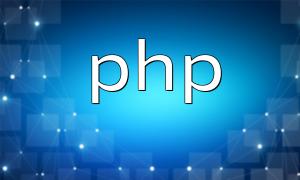Properly releasing unused variables can significantly reduce memory usage. Use unset() to clear variables, gc_collect_cycles() to trigger garbage collection manually, and consider using object pools to manage object instantiation and improve memory efficiency.
Database query performance directly affects application response speed. It is recommended to use indexes, caching, and connection pools to manage database connections and avoid frequent reconnections. For large data operations, use LIMIT or pagination to control the amount of returned data.
Enable caching mechanisms such as APC or Redis to reduce repeated request pressure. Merge CSS and JavaScript files to decrease the number of requests, and use a CDN to deliver static files for faster and more stable loading.
Move time-consuming tasks to background processes, adopt a microservices architecture to split the application into independent modules, and use queues to handle requests asynchronously, preventing bottlenecks and improving overall system performance.
Use tools like XHProf or Blackfire to identify performance bottlenecks and locate key optimization areas. Continuously monitor application performance and adjust based on analysis results to ensure stable and efficient operation under high load.
// Enable caching
use Symfony\Component\Cache\Adapter\FilesystemAdapter;
$cache = new FilesystemAdapter();
// Get cache key
$cacheKey = 'my_cached_data';
// Retrieve data from cache
$cachedData = $cache->getItem($cacheKey);
// If cache is empty, fetch data from the database and store it
if (!$cachedData->isHit()) {
// Fetch data from the database
$cachedData->set($data);
// Set cache expiration time
$cachedData->expiresAfter(3600);
// Save data to cache
$cache->save($cachedData);
}
// Use data from cache
$data = $cachedData->get();By caching database query results, you can significantly reduce the number of database accesses, thereby improving PHP application performance and response speed.









